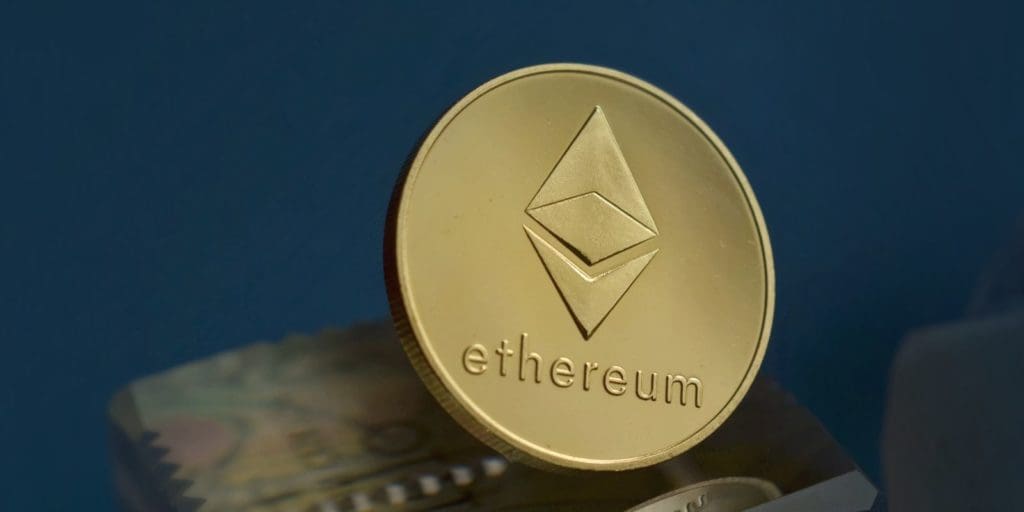The Ethereum network can support such relationships by offering a decentralized transaction platform that offers some critical pros that traditional approaches lack. The technology behind the Ethereum blockchain provides a low-cost and transparent transaction platform, which helps remove any unnecessary middlemen from the equation.
Not all of these advantages are immediately apparent. Still, through scalability to increase the number of transactions per minute, decentralization for security purposes, and smart contracts for execution of rules in the supply chain process, there is an overall performance advantage to using an Ethereum-based solution over other widely used platforms. If you are interested in trading Ethereum, use a reliable trading platform like the Ethereum Code platform.
Ethereum offers many more pros than cons, so it’s hard not to consider further investigating this mighty new distributed ledger technology. The pros and cons of the project are outlined below.
A large variety of platform applications
The Ethereum blockchain has a few basic building blocks to which it can attach new applications, but the possibilities are endless. By having a wide variety of capabilities, it’s clear that this technology will be able to support many different types of use cases beyond simply making money through the distribution of ICO tokens. So many things are possible with this decentralized blockchain, including smart contracts (which can automate certain parts of supply chain processes), voting systems (that help make decisions about where the product is moved), and identity systems that can have special rules for specific products.
Scalability
Ethereum has the scalability to support many transactions, an essential feature in the supply chain industry. With that said, it can handle around 20 transactions per second at its peak, but that isn’t necessarily a problem as there are plans to improve this model in the future. In addition, through scalability, Ethereum may be able to offer greater transactional security for parts of supply chains. That could lead to greater transparency and less risk for partners selling and purchasing products.
Security
Ethereum offers good security through its decentralized network of nodes spread worldwide. In addition, the blockchain is constantly updated, so there isn’t one point of failure for an attack to take hold. As a result, Ethereum is better than other platforms in terms of security and reliability. With these pros, there are clear benefits from a trust standpoint between the supply chain partners and their customers.
Lower costs due to fewer intermediaries
Reducing the number of parties involved in a transaction can lower costs for everyone involved. For example, Ethereum uses its blockchain technology instead of a more traditional centralized transaction platform. With fewer intermediaries, it’s possible that businesses can cut out some unnecessary costs and provide a better product/service as well.
No single point of failure
With a blockchain, there are no single points of failure, so the Ethereum blockchain is an excellent platform for use in supply chains. Furthermore, it is rapidly updated, which means there is a more significant security layer that doesn’t require each network host to take on much trust in the system. In addition, the cost savings are substantial as fewer intermediaries are involved with transactions.
Transparency and data integrity
The Ethereum network can provide complete transparency for all supply chain partners regarding the products being distributed. It means that every product has transaction records that anyone can verify from any vantage point across thousands of nodes worldwide. It is a compelling advantage for supply chain partners, ensuring the product they are distributing is what they said it was.
Tokenizing products
Another famous use case for the Ethereum blockchain is to tokenize existing products, say chocolate bars. Each item that has been tokenized will have a unique code attached to it, and a smart contract can have a use case to ensure that only certain people can access certain products or information about them. It will provide complete transparency throughout the supply chain by having data integrity over the entire distribution process.
Smart contracts
Smart contracts can also have a use case in supply chains as they could help automate specific manual tasks and improve efficiency within a facility. Intelligent contracts can trigger automatic payments when specific safety standards are met.
Possible scalability issues and security
Scalability is something that will be analyzed in more detail. Still, there is some concern that the Ethereum network may not scale well enough for the supply chain industry, according to the current ecosystem. However, with subsequent deployment of ether 2.0, the scalability issues will not be there as it will be able to process more than 10000 transactions daily. Hopefully, this technology can grow and change with innovations over time to prevent significant complications. More research into scaling up should help to address these issues.

